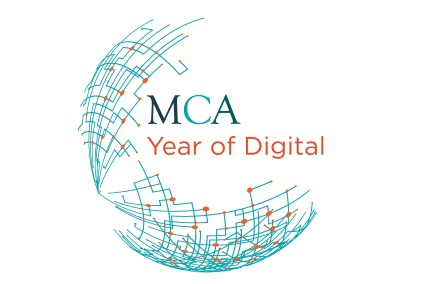PwC Digital Partner Carlo Gagliardi confirms that there was lots of activity in 2014.
“More businesses now understand that they need more than just a Digital strategy,” Carlo opines. “They need a business strategy for the Digital Age.” He notes that developments in this area, which have predominately consisted of customer-facing channel shifts, have been especially acute in financial services and in retail. “But there’s more to do. Financial services such as banks know who their customers are. Some retailers have subscription models or loyalty cards, and so they deal with faced and named customers rather than faceless and nameless consumers. But some players, especially some of the new discounters, don’t know their customer at all. Now, a third group of players is emerging, seeking to market themselves to wider audiences through social media. This is changing branding, marketing, customer service, and, of course, PR, profoundly.”
Carlo identifies other growth sectors for PwC in Digital, such as local government and wealth management. “Another interesting area has been higher education. The next generation of students is very digitally aware. Attracting and retaining them requires Digital dexterity. Digital is also breaking down the relationship between knowledge and power. Historically, academics held that knowledge and so had the power. Now access to information is more fluid. Some institutions are recognising this. For example MIT puts all of its lectures on the internet.” Carlo says that Digital provides the basis for whole lifecycle relationships to be developed between universities, applicants, students and alumni.
In the future, Carlo believes we will see wider and deeper digitisation. “Beyond front-end, customer-facing activities, there are other threats and opportunities deeper in the value chain. We have seen the emergence of Chief Digital Officers. These have been welcome cheerleaders for Digital change. But will they last?” Carlo also believes that the need for cultural change is linked to the basic definition of what Digital is and what it provides. “In a business, IT used to be about getting inflexible systems working at capacity – often at great cost. Marketeers wanted things to move faster than IT people could supply. Now Digital capabilities are providing some agility, through apps and more interactive and automated customer channels. But Digital should be providing agility across the whole enterprise, in terms of skills, data, process and innovation.” Carlo argues that Return on Agility beats Return on Crystal Balls since predicting the future is trickier than ever. “Agility across the enterprise in both internal systems and customer-facing channels should get marketeers and IT departments what they both want.”
Digital’s potential lies in its ability to integrate disparate value and to unpack monolithic value. “Take the Uber business model. It can be described in two ways. It could be used to link up disparate systems. At the moment, there is no integrated transport system really. Just road, rail, sea and air. Yet a Digital offering that looked at the quickest way to get from A to B would bring transport elements together in ways that add value to consumers. By contrast, identifying a small amount of unused freight space in a lorry fleet is challenging. But Digital makes it possible, allowing hauliers to improve margins by selling unused space and traders with limited or tactical logistical needs to secure good deals.”
The key is data. “Chief Digital Officers of today may morph into the Chief Data Officers of tomorrow, as enterprises realise how central data is to value creation.” Carlo sidesteps controversies surrounding data ownership, but says consumer demands will create new business models anyway. “Some transactional data will remain inalienably the property of the company. But consumers will want to extract more value from data about them – and claim ownership of some of it. Customers usually get what they want. So new businesses will emerge to let them. A holiday booking aggregator could spot patterns in a customer’s purchase habits and collaborate with them to get the best offers, in exchange for additional information, which remains the customer’s in the long-term – such as their plans for the summer. Another firm could use data from people’s weekly shopping patterns to secure them the best deals – from all supermarkets, not just one. Digital budgeting and concierge services of this sort could become viable if they can win the customer’s trust to disclose more personal data. One way to do this might be to give the customer an ‘erase button’ for the data the customer truly owns. This would win more customers and may minimise the odds that the button is actually used.”
“The trick however will be to monetise these new business models …”


